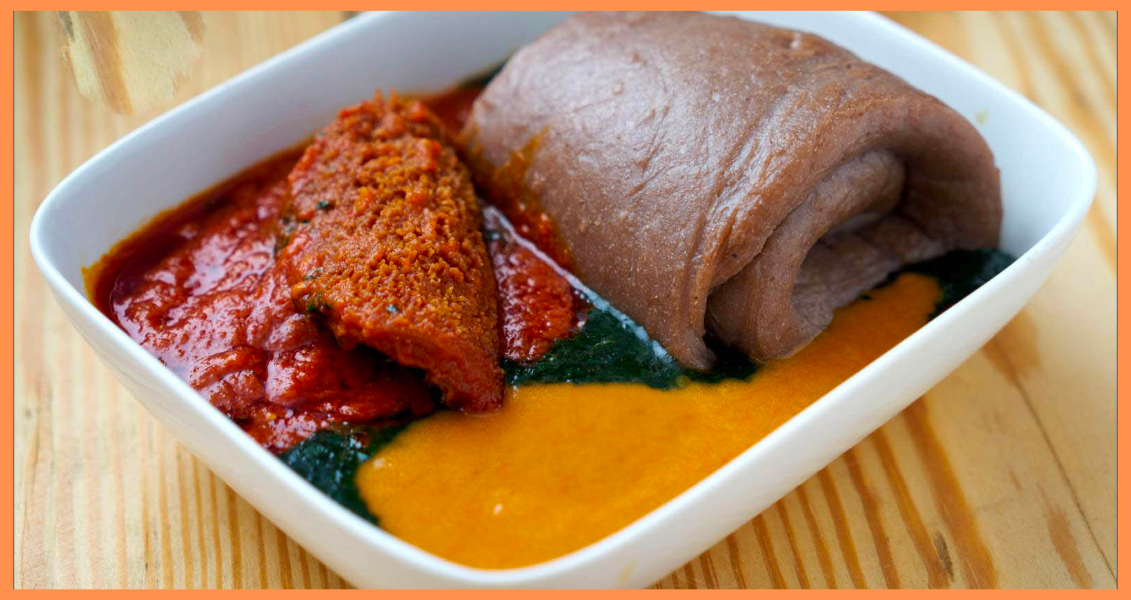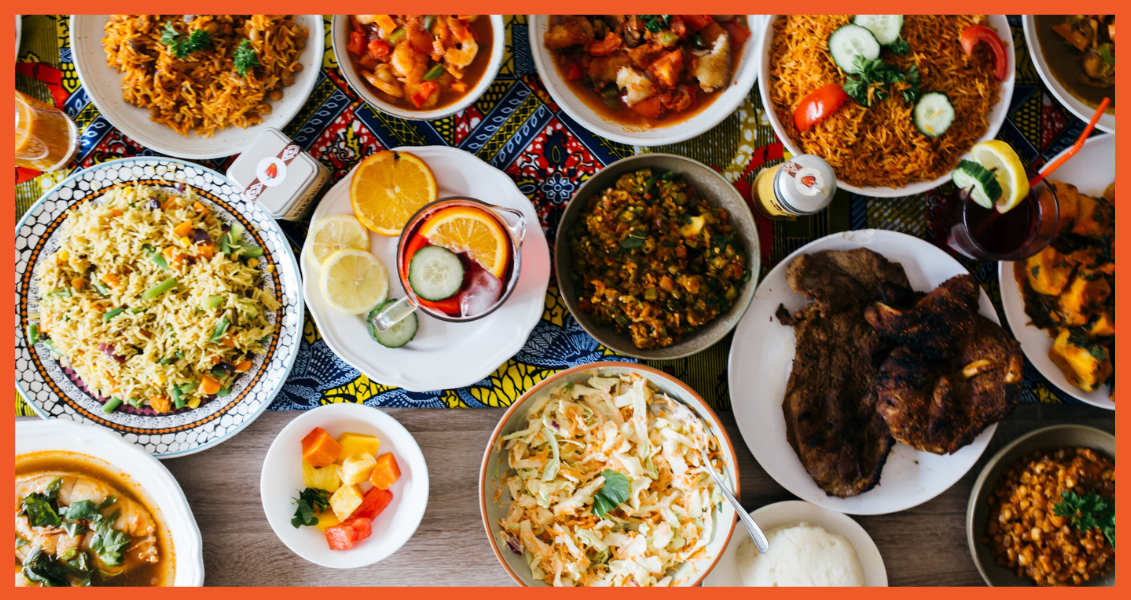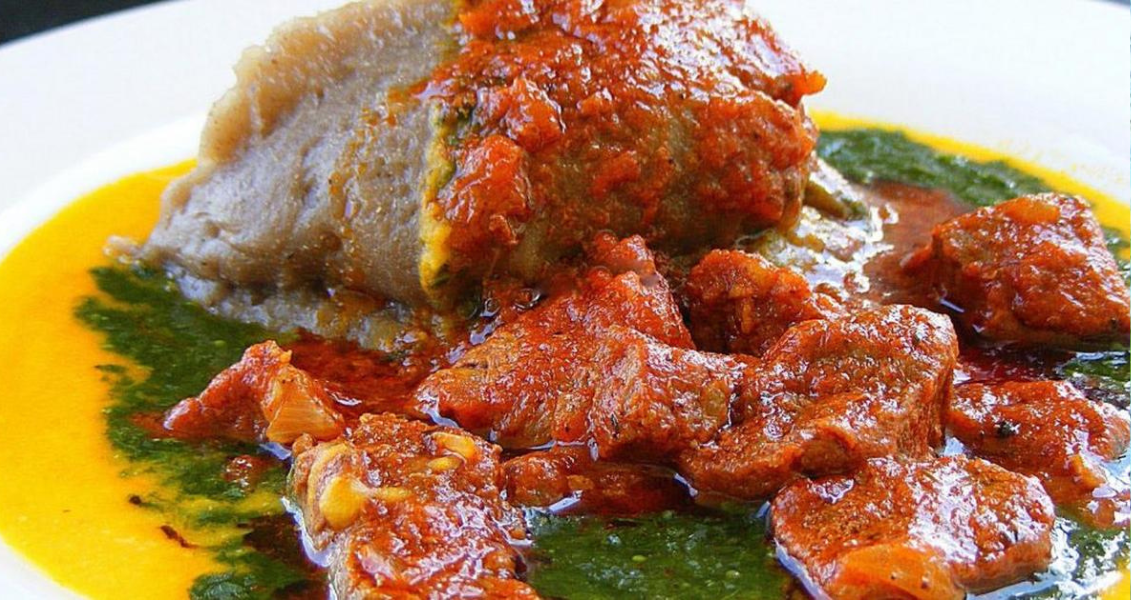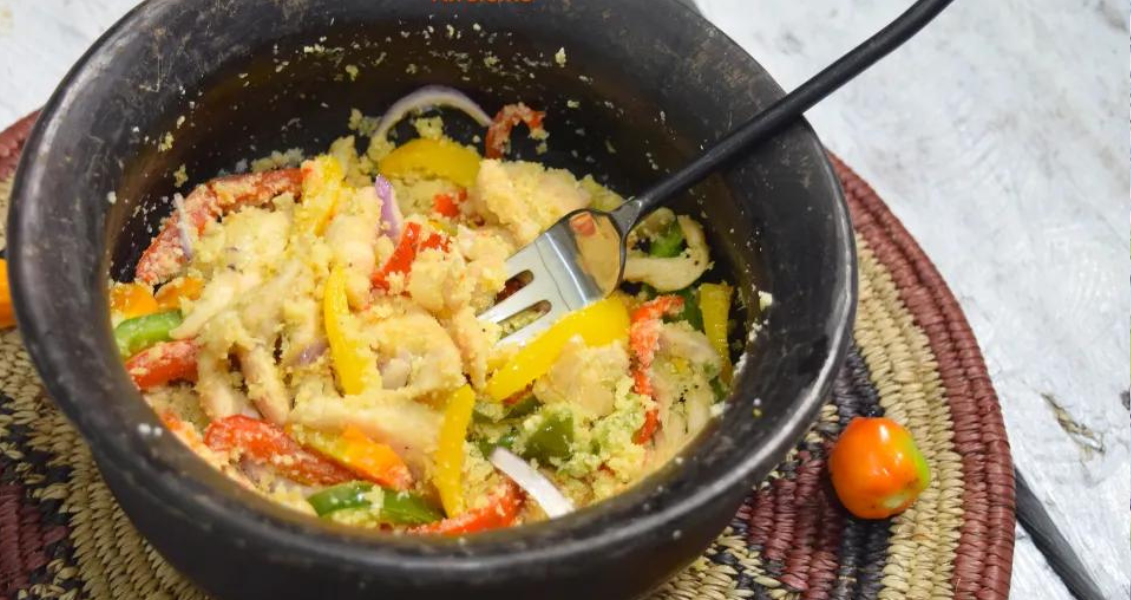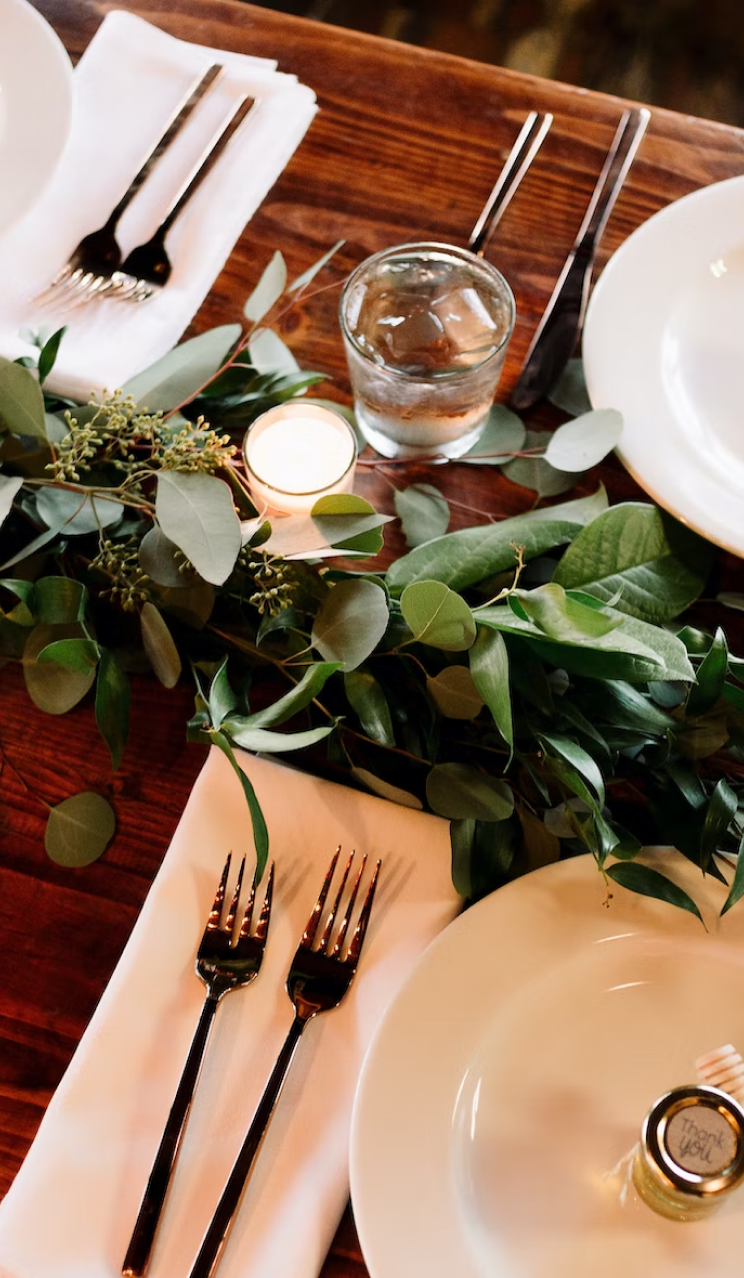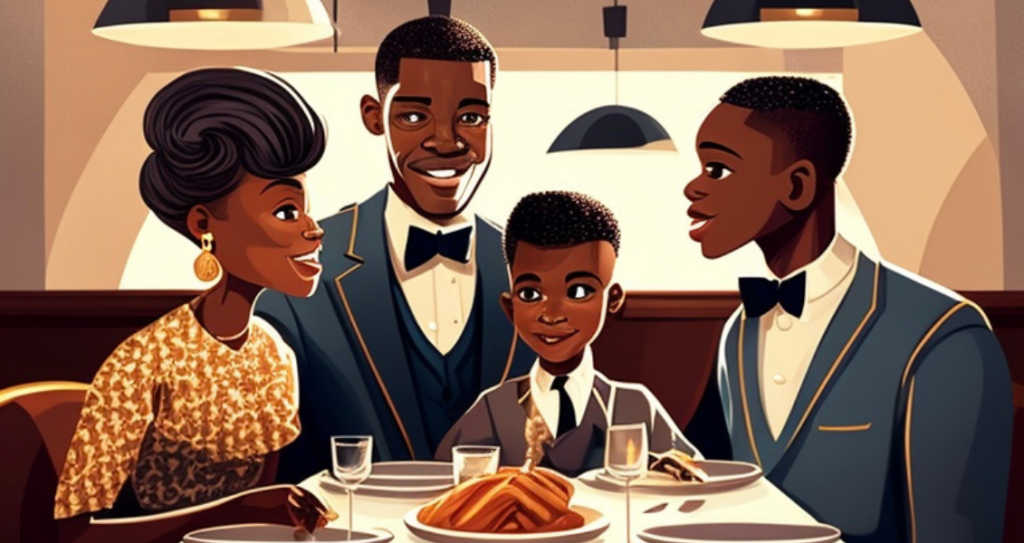
David, a longtime friend and colleague, thinks that it reflects badly on married women whose husbands eat in restaurants at frequent intervals. This outdated stereotype is an offshoot of the often romanticised African patriarchy, where women are solely responsible for satisfying their husbands’ culinary desires: if a man eats out, it is seen as a reflection of the woman’s inadequacy in performing her domestic duties.
I was, however, raised differently. Growing up in Kogi state, my family had an active affinity with restaurants, and we had a Sunday ritual where we bonded over lunch at a local restaurant.
My earliest memory of our Sunday lunch bonding was in 1999, a few days after my father bought his navy blue Peugeot 504. That Sunday, it was just the both of us who went to church for a special thanksgiving held to thank God for the gift of the car. On our way home, he took a detour and we ended up at a restaurant where I had rice and stew and he ordered pounded yam and egusi soup. He asked me not to tell mum of this little adventure — a promise which I agreed to but did not keep, because I was five and five-year-olds keep no secrets.
I don’t know how or when this little adventure eventually blossomed into a family ritual, but I remember that soon after, the best part of my weeks became Sunday afternoons after church: the direction of my dad’s 504 would turn towards the town where our favourite restaurants were based.
Uchenna Restaurant was the first ever restaurant I took a particular interest in: it was a small, intimately furnished space owned by a towering, broad-shouldered man who wore greasy aprons. The restaurant only served cuisines from the south east, and it was there I had my first taste of what I would later realise was oha soup. It was my favourite because, from the first time the soup hit my tongue, it would become my favourite soup in the world. Prior to oha, while my parents were often willing to experiment with different Igbo dishes, I preferred to stick with rice and stew. Uchenna never salted his rice, and he garnished his stew with scent leaves, giving it a distinct aroma that I would forever link to him.
Sometimes, we visited Garrido Garden, Okene, where we ate catfish, crabs, and prawns. I’ve never liked seafood, but I looked forward to watching Sunday afternoon football analysis at Garrido since their cable TV was permanently tuned to Supersports. It was at Garrido I watched a rebroadcast of the May 2002 Manchester United versus Arsenal game where Sylvain Wiltord’s lone goal won the Gunners a historic premier league trophy at Old Trafford. Whenever I retrace the genesis of my support for Arsenal, I find myself sitting wide-eyed in front of the TV screen at Garrido, watching Arsenal lift the premier league trophy.
Those Sunday afternoons are forever engraved in my heart for their importance in my social evolution. And in the course of my young life, I reckon many important life-altering decisions were communicated to me over plates of food laid out in front of me. It was over lunch at Chisco Foods that I was informed of my parent’s decision to send me to a boarding school. I’d cried bitterly, and to assuage my grief, my father ordered an extra serving of chicken nuggets in a takeaway pack for me.
After my mother passed, my father would pick me up from boarding school on some Sundays and drive me to Mr Biggs for lunch (whatever happened to those guys?) because even though it was just the two of us left, the Sunday tradition was the most important fabric that bound us together as a family unit. As phone calls weren’t always accessible in those days, our communication was structured chiefly around lunchtime conversations. Over lunch, he would ask me about school, about the seniors that bullied me and subjects I had trouble with. I would ask him about home, about the evening TV shows we used to enjoy together.
When I got into the university, I retained the habit of visiting cheap eateries with my friends even on my meagre monthly allowances. They may or may never have noticed this, but the times we spent around the table at Tito and Item 7 were some of the most wholesome moments we had together.
As I grew older and became more independent, I never shied away from giving myself a treat once in a while, and I have started life-altering projects while looking over menus at fancy restaurants. My resolve to move to Lagos, for example, was concretised over dessert at the Zuma Restaurant, Transcorp Hilton. My affinity with restaurants has helped me retain an intimate connection with my childhood, and even though my palate has evolved past Uchenna’s rice and chicken, I still perceive certain aromas that take me back through the years.
I sometimes think about my family — when I eventually have one — and I imagine myself reincarnating my father’s Sunday rituals with my children. I don’t have clarity on what my relationship with the church would be by then, but the restaurant will always be, for me, more than just a place to eat.













